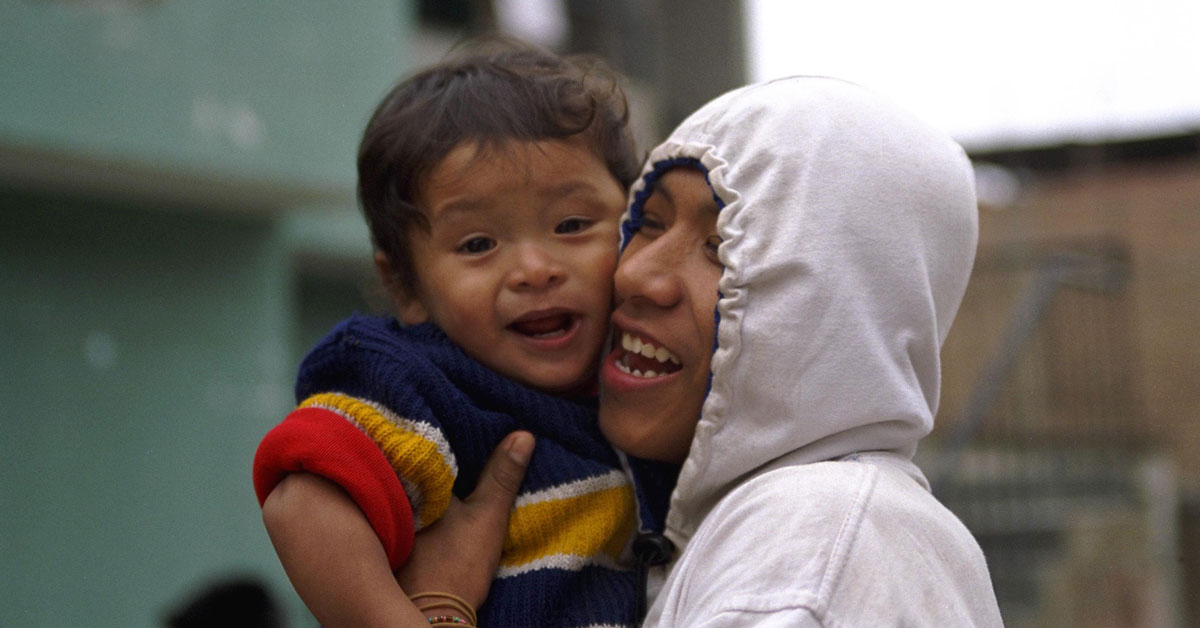
Although there is increasing recognition of fathers’ roles in the daily care of their children, in Peru there is still a strong belief that only women – or mainly women – should bear the primary responsibility for childcare and domestic work. This belief is evidenced, for example, in Peru’s National Time Use Survey, which found that women in Peru spend twice as much time as men taking care of the children and cleaning the house, and three times as much on activities related to food preparation. This burden of unpaid care work on women implies fatigue, an overloading of their time, as well as greater difficulty in accessing paid employment and finding time for leisure and personal development.
According to the Universidad del Pacífico, the unpaid care work done in Peru each year has an equivalent value of 110 billion Peruvian Nuevos Soles, or 25% of the country’s total GDP.
The fact that this inequitable distribution of unpaid care work is both accepted and expected by society creates a privileged status for men. However, the “privilege” that allows men to distance themselves from caregiving and to spend their time in other ways is problematic not only for women, but also for children and for men themselves. When men participate in the care work, on the other hand, the benefits add up quickly for all.
Engaging men as involved fathers can lead to improved maternal and child health, stronger and more equitable partner relations, a reduction in violence against women and children, and lifelong benefits for daughters and sons. Research has shown that men’s involvement as caregivers also has benefits for them: it increases their closeness with their children, improves their intimate relationships, and enhances their quality of life.
It is through this framing of care that MenCare Peru is carrying out a new fatherhood intervention, under the umbrella of Aldeas Infantiles SOS Peru’s Cuida de mí (“Take care of me,” in English) project. This intervention aims to promote active fatherhood and gender equality as a strategy for preventing child abuse and gender-based violence.
The intervention is based on research about men’s and women’s attitudes and behaviors related to gender equality, which suggests that individuals who, as children, witness men’s equitable and nonviolent involvement in caregiving are, as adults, more likely to have gender-equitable attitudes and less likely to use or experience violence in their intimate relationships. It draws on activities from Program P and from the “Fatherhood and Caregiving” module of Program H.
MenCare Peru developed and adapted activities for the intervention in the San Juan de Lurigancho district of Lima. This is the most populous district of Peru and one of the most populated in South America, with more than one million inhabitants.
Out of the pilot of these activities came the document Soy tu papá … y eso te hace bien (which translates to “I am your father…and that is good for you,” in English). The joint publication of Aldeas Infantiles SOS Peru and “ALIADOS / Hombres por la igualdad de género” narrates the process of adaption and validation of the activities and assesses their impact.
Read more about the initiative in Spanish here, and download the document here.